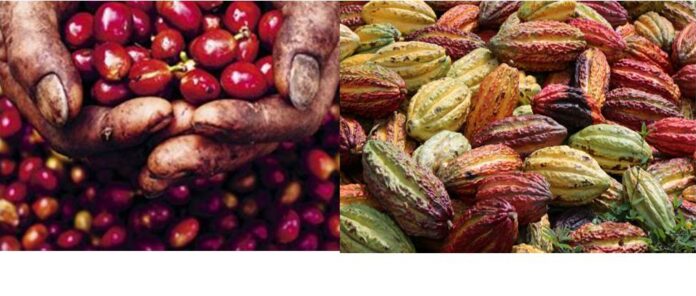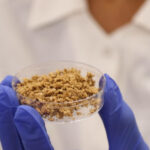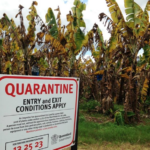McKinsey & Company, the business consulting firm, calls it a biological revolution that will transform the world economy. The Genetic Literacy Project calls agricultural biotechnology the missing innovation to help us adjust to severe climate change. There is no doubt that technological innovation must be a part of our global solution to the little foreseen technological mess we have caused by polluting the atmosphere with greenhouse gasses.
By now it should be apparent to all humanity that technological innovation always comes with risks. Some are profound with serious implications for biology and the environment. Our thirst for energy has led to the innovative practice of deep-sea drilling for oil and gas. The unintended consequences of oil spills like the one that occurred at the Deepwater Horizon platform in the Gulf of Mexico in 2010 show us just how damaging innovation can be.
A 2020 report produced by the McKinsey Global Institute describes how biological innovation improves our ability to deal with seemingly intractable global challenges. It describes how well biotechnology advancements have served us during the current COVID-19 pandemic with advances in genetic sequencing, and fast-tracking development of mRNA and adenovirus-based vaccines.
McKinsey notes that “as much as 60% of the physical inputs to the global economy could be produced biologically” and that two-thirds of the remainder consisting of non-biological materials including oil, gas, and plastic could be replaced by biologically-sourced substitutes. It cites 400 use cases with economic implications worth $4 trillion annually that could be developed within the next two decades in fields such as agriculture and food, consumer products, materials and energy production.
As global warming continues to stress agricultural production, it is clear that using our knowledge of genetics to enhance essential food staples will be critical to ensuring the world’s growing population will not face critical shortages. Genome editing is a powerful tool for saving crops from changes occurring in the places where they have been traditionally grown.
The Cacao and Coffee Challenge
A recent article written by Duke University’s Randall Mayes, entitled “A Perfect Storm: The Chocolate, Coffee, and Climate Crises,” illustrates the global warming impact problem. Mayes is a futurist and teacher on emerging technologies at the university and chose to look at chocolate and coffee not because they are essential crops, but because the efforts to save the two demonstrate what is possible using genetics to overcome the impacts of global warming.
Cacao is native originally to the Amazon Basin and thrives in settings 20 degrees north and south of the equator today from Central and South America to Africa. Two countries in West Africa are responsible for more than 50% of the world’s chocolate. They are Côte d’Ivoire and Ghana. But rising atmospheric temperatures within the traditional habitat are causing lower humidity making the trees more vulnerable to fungal infections. To naturally compensate, growers have been moving their trees to higher elevations, as much as 300 metres (1,000 feet) which put them in competition with areas set aside in the past for wildlife preservation.
Coffee is seeing the same environmental stresses because it grows in approximately the same places where Cacao thrives. And even though there are more than 124 varieties of coffee with most of them being wild, the problems for the plant are threefold: rising temperatures, periods of excessive rainfall, and periods of drought. The projections show that coffee-growing areas are expected to shrink by 50% by 2050 with a risk of extinction for 60% of all varieties.
Genome Editing for Adaptation
Short of reversing global warming within the next two decades (not possible with the latency effect from carbon dioxide emissions in the atmosphere) genome editing is likely to be the saviour of both coffee and cacao.
For chocolate, there is the Cacao Genome Project, launched by Mars, the food company most known for candy products, and the University of California Berkeley. The research is focused on engineering climate change adaptability traits into the cacao tree using tools like CRISPR to edit its DNA. The hope is to produce a tree that tolerates warmer and drier conditions. And for coffee, the University of California Davis has its Coffee Genome Project focused on genetic sequencing of Coffea arabica responsible for 70% of global production. By sequencing 12 different wild varieties, UC Davis researchers hope to find traits in them that will help coffee withstand the growing environmental threats from climate change.
In these two non-essential food examples it is clear that modern genetic modification technology is providing fixes that if applied to essential food crops will serve to ensure food security in the face of climate change. But that means accepting the benefits of genetic engineering which for some is seen as unacceptable.
And as the McKinsey report notes, genetic modifications to help feed the planet, as well as create biological alternatives to meet our energy and material requirements, should be a no-brainer. That’s why, for the sake of the planet and humanity, we need to embrace genetic tools like CRISPR, and ones to come (because there will be more) to ensure not only that we have enough food but also an environment without the pollution that has contributed to global warming, and that was caused by technological innovation mistakes of the past.
















